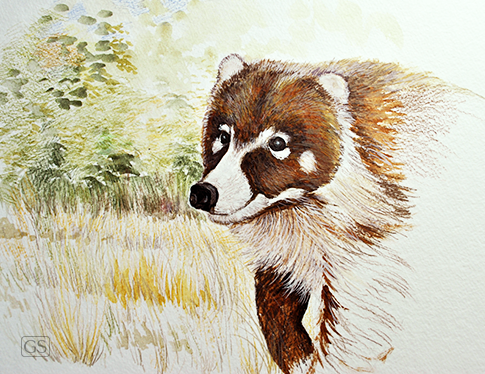Tropical carnivores stay social in a temperate environment
03-05-2018

White-nosed coatis are small carnivores related to raccoons, but in many ways act more like monkeys. They have an unusual social structure: females are gregarious, living in bands that can contain dozens of animals, but males are solitary. Primarily found in tropical rain forests, they also eke out a living in the deserts of southeast Arizona. The results of a 9-year study of the species at the northernmost limit of its geographic range have just been published (McColgin, ME, JL Koprowski and PM Waser. 2017. White-nosed coatis in Arizona: tropical carnivores in a temperate environment. Journal of Mammalogy 99: 64-74. https://doi.org/10.1093/jmammal/gyx153 ).
In Chiricahua National Monument, there are as few as 1 animal per 10 km2 – only 1% of the density they attain in tropical Panama. Bands are small and animals must travel long distances each day to find food and water. Moreover, separate bands sometimes fuse into large aggregations centered around scarce waterholes. Nevertheless, radiotracking and genetic analyses show that they maintain the species-typical social structure, young females growing up and staying in their mothers’ bands, but young males striking out on their own. Core patterns of sociality are constant in both resource-rich tropical and resource-poor temperate populations, but coatis make major adjustments in scale of movement and frequency of association in response to resource variation.